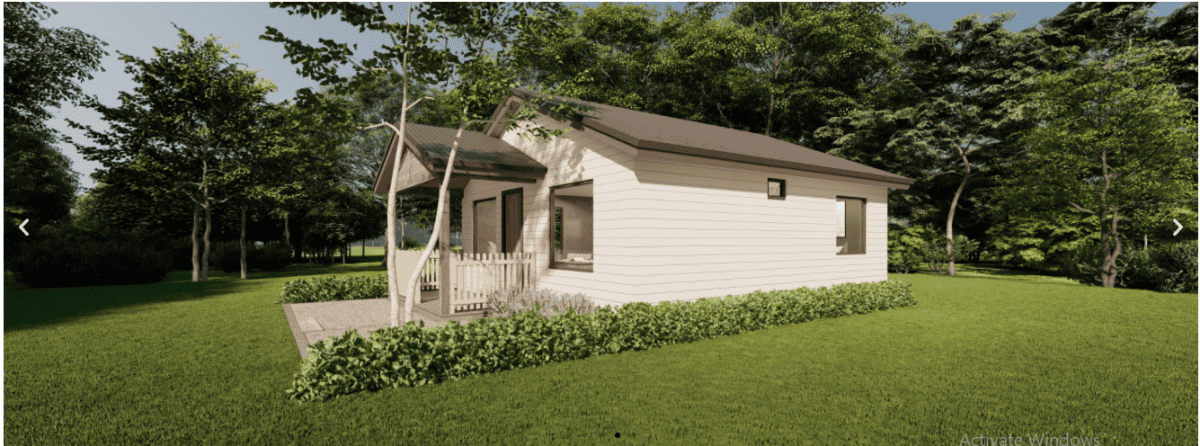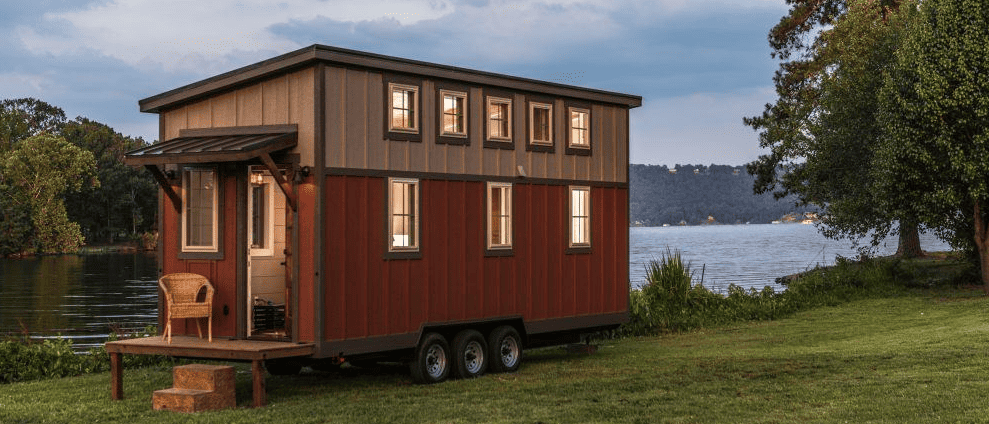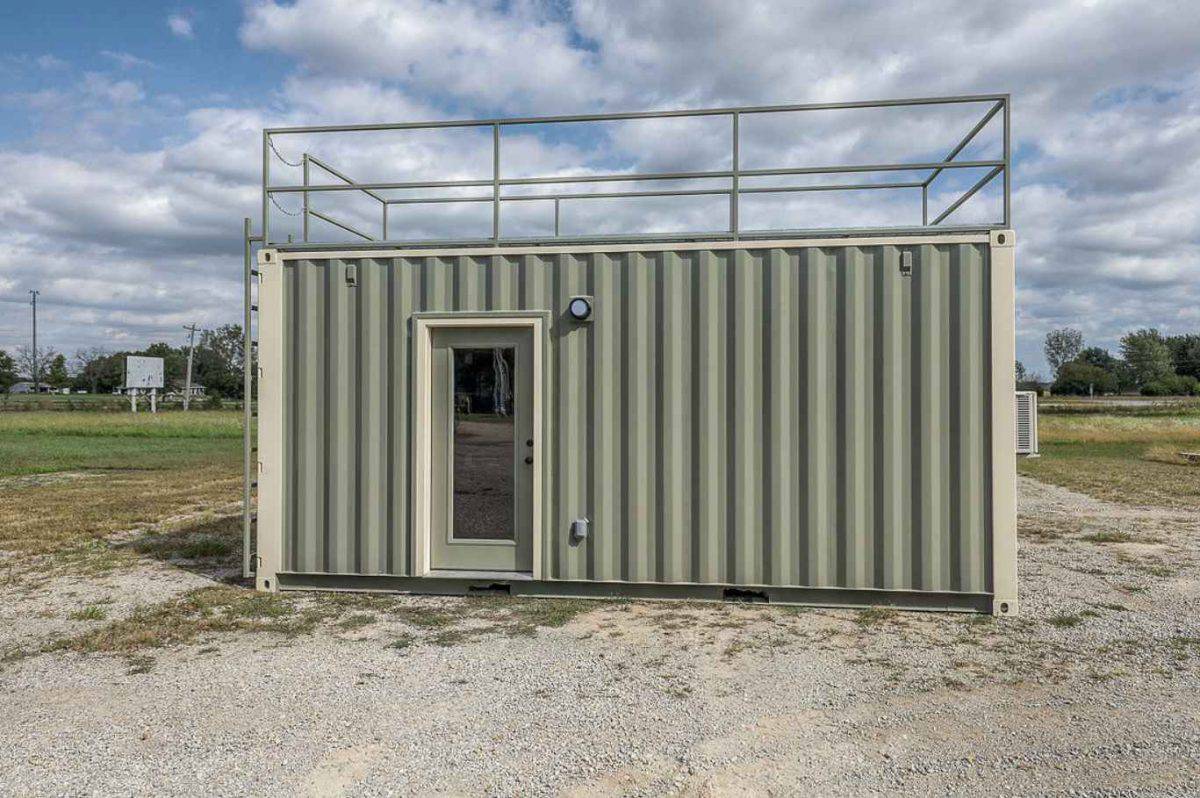As many consider going tiny, the tiny house movement is gaining popularity in the U.S. due to rising mortgage prices and increased ecological sensibility amongst the American population. Many potential homeowners are now considering an energy-efficient, inexpensive, and ecologically sustainable housing solution – tiny homes! Although tiny homes are an affordable way of living, there are several gray areas when it comes to zoning laws and regulations. While the tiny home movement is growing rapidly and there is a lot of enthusiasm about it, the government regulations and the zoning laws and practices are slowly adapting to this new development. At TinyHouseMe, we offer an in-depth analysis of everything you need about tiny house living. We also help you connect directly with tiny home builders offering ADUs, tiny home kits for sale, houses on foundation, homes on wheels, and structures of a similar kind.
Tiny homeowners need to be more aware of zoning laws as they cannot park the structure anywhere around the city or county. As per Financial Times, there are around 10,000 tiny houses in the U.S., and almost 15.5% are located in the tiny home-friendly state of California. The zoning laws are strict and often confusing for the rest of the country. So, we have decided to decode and put the real picture before you.
Tiny Homes are too small for consideration as permanent dwellings
Zoning codes vary greatly throughout the country as they are passed and enforced by the local governing bodies. Any dwelling should be built keeping the local zoning codes in mind, and most codes have a minimum square footage requirement for housing structures.
President of the Tiny Home Industry Association, Dan Fitzpatrick, says that most of the municipalities take 700 to 1000 sq. ft. as the minimum size of a home.
The problem here is that, as per definition, tiny homes are under 400 square feet, and such a small structure is uninhabitable for full-time living in many regions of the country.
However, this rule is different from one state to another. For example, Oregon has no minimum square-footage requirement, and it is quite easy to own a tiny home. On the other hand, in Durham, North Carolina, one single-family house needs to be minimally 400 sq. ft., larger than a conventional, tiny home.
Things get more complicated as the zoning laws differ from one community to another. In Wilmington, North Carolina, a person can live in a tiny home that’s minimally 150 sq. ft. In contrast, just 200 miles away in North Carolina’s Winston-Salem, a tiny home needs to be built on a foundation, and only the caretaker of the property owner or a relative can occupy the space.
As zoning laws vary drastically throughout the country, tiny homeowners must be very careful before purchasing. Consult with the professionals at TinyHouseMe, and let us guide you to make the right purchase from a recognized and trusted builder.
In the eyes of the local government – Tiny Homes on wheels are often considered RVs
There is no universal definition of tiny houses, and the zoning codes vary greatly throughout the country, so they are most classified as recreational vehicles. However, there are a few problems that need to be addressed here.
Firstly, RV parking is very restrictive. Local governments in most regions allow RVs to be parked in specific locations, like campgrounds and RV parks. It is impossible to park the tiny structure on private land or a backyard, and living full-time inside the space is also quite challenging.
Secondly, many municipalities limit the days you can live inside a tiny home on wheels. This is because RVs are not considered inhabitable for living full-time. There are RV parks where you can put a tiny home, but you won’t be allowed to live for more than 90 days or 180 days at a time. These are some of the issues that you need to research.
However, you can write the definition of the movable tiny home in the local ordinance and distinguish the structure from the typical RV. For more information, it’s always better to connect with experts at TinyHouseMe. We provide useful information about tiny homes and connect you with trusted home builders offering tiny home kits for sale at competitive prices.
Some tiny homes are considered as ADUs, but the rules vary greatly
The Tiny Home Industry Association is trying to categorize tiny homes as ADUs in certain states where people can park the structure on private properties. San Jose, Fresno, and Los Angeles are a few cities that have taken this route and called these structures granny flats or backyard cottages. However, there are some confusing guidelines here too.
While traditional tiny homes are mostly built on wheels, the ADUs need to be built only on a foundation in some places. In some places, like North Carolina, a tiny home needs to have a family member or someone working in the larger house.
So, what does all this mean for the tiny homeowner?
Living in a tiny house and parking the structure is no longer a struggle if you have the research work done. To avoid such headaches and ensure that the house is legally parked, read the municipality zoning codes thoroughly and see the mention of tiny houses. If there is no mention of tiny homes, you need to work with the local zoning board to pass the tiny home-friendly codes, or else check out other places for legal parking.






